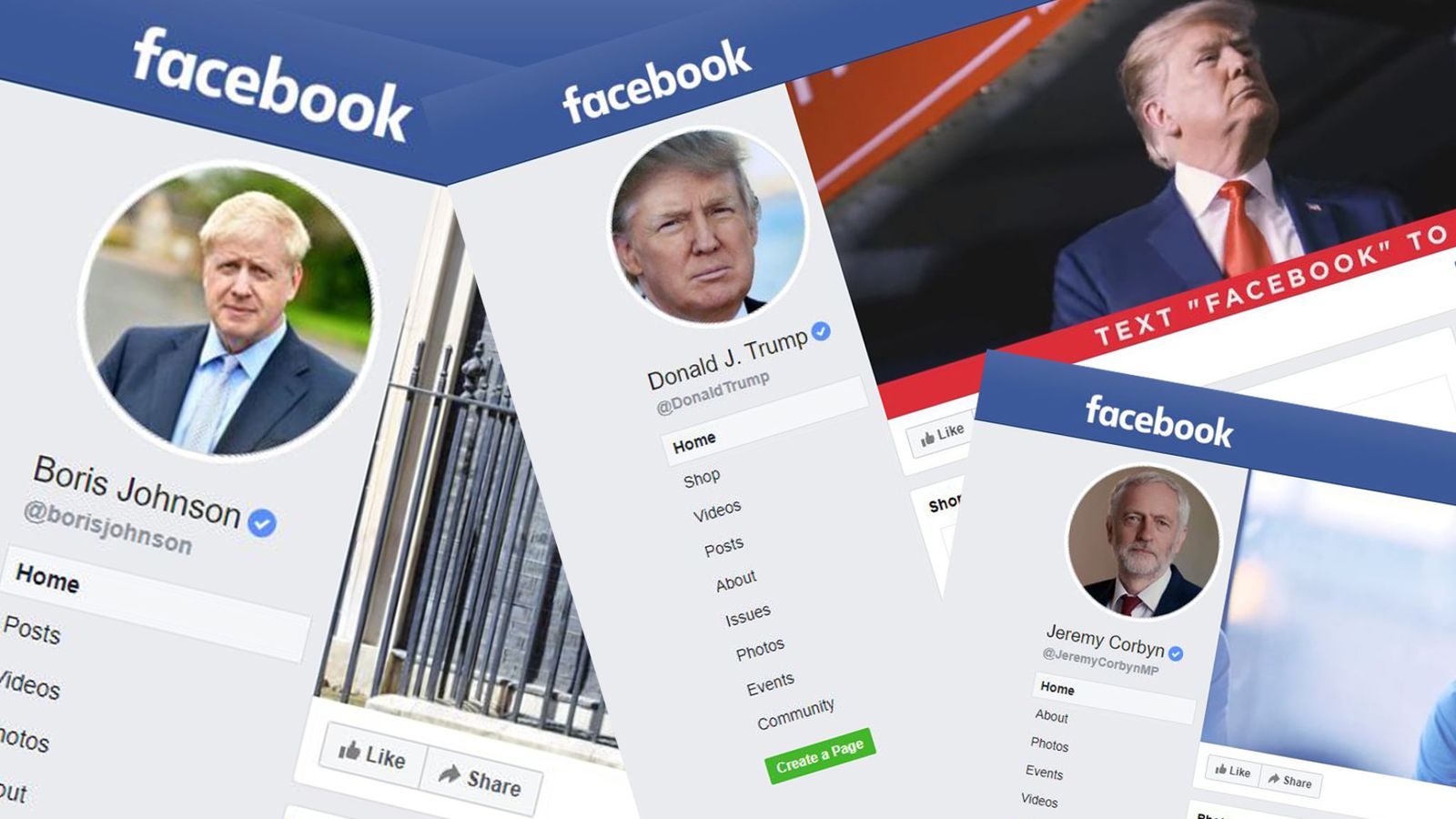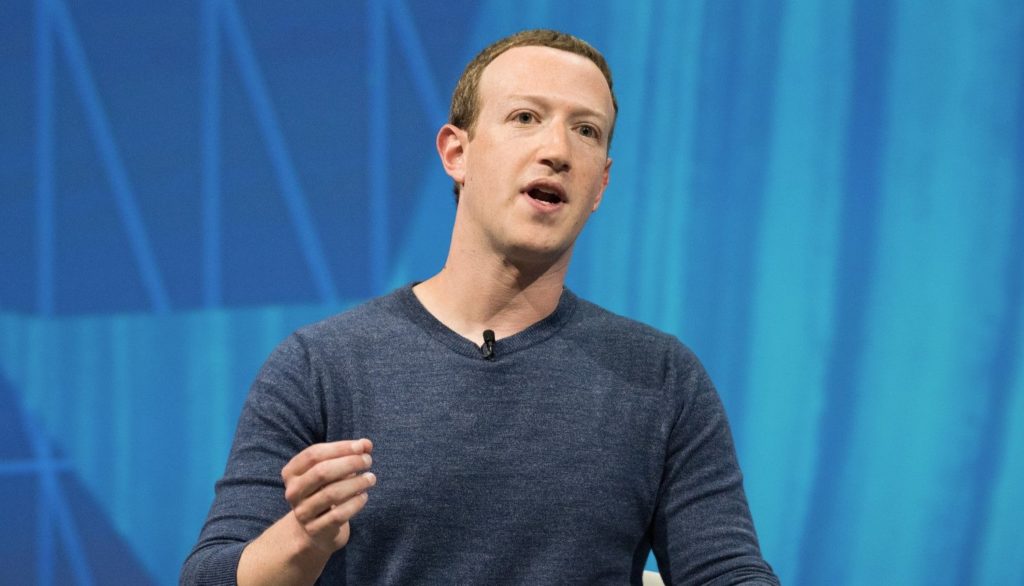 Facebook will allow politicians to break its usual community standards and exempt them from its fact-checking process in order to maintain “free expression” on the platform ahead of upcoming elections.
Facebook will allow politicians to break its usual community standards and exempt them from its fact-checking process in order to maintain “free expression” on the platform ahead of upcoming elections.
With the US heading to the polls next year, and the UK gearing up for a potential vote of its own in the coming weeks, the social media giant has outlined how it will manage political debate on its platforms.
Despite a commitment to cracking down on the spread of misinformation, the tech company has said it must make exceptions for political figures out of “respect for the democratic process”.
Image: Social media has become a major battleground for politicians
Teens exposed to highly charged political ads on Facebook and Instagram Hundreds of ads were shown to 13 to 17-year-olds on Facebook and Instagram, most from the Conservatives featuring Boris Johnson
Sir Nick Clegg, who joined Facebook as vice president of global affairs and communications last year, attempted to explain the policy in a blog post after a speech on the issue in Washington.
The former Lib Dem leader and deputy prime minister said it was “appropriate” for the company to “referee political debates” and stop the views of politicians from being aired.
Advertisement “We rely on third-party fact-checkers to help reduce the spread of false news and other types of viral misinformation, like memes or manipulated photos and videos,” he said.
“We don’t believe, however, that it’s an appropriate role for us to referee political debates and prevent a politician’s speech from reaching its audience and being subject to public debate and scrutiny.”
More from Facebook New Zealand mosque attack videos are still being hosted on Facebook Facebook Portal: Tech giant admits its new smart devices allow people to listen in Facebook to launch ‘supreme court’ to judge controversial content Facebook to use firearms video from Met Police to detect live-streamed terror attacks Facebook defends Libra cryptocurrency plans amid call for Europe-wide ban Wish.com: Ads on Facebook target teens with common drug dealing equipment That means politicians will continue to be exempt from third-party fact-checking – unless they are sharing previously debunked content, in which case it will be demoted and banned from being posted in adverts.
Politicians will also now be covered by a “newsworthiness exemption” that Facebook has had in place since 2016, meaning content breaching community standards will be allowed if public interest outweighs potential harm.
Image: Sir Nick Clegg outlined the policies in a speech and blog post Sir Nick said country-specific factors will be taken into account when making that distinction, including whether it has a free press and whether it is at war.
He added: “Content that has the potential to incite violence, for example, may pose a safety risk that outweighs the public interest value.Each of these evaluations will be holistic and comprehensive in nature, and will account for international human rights standards.”
Political adverts will not be covered by the newsworthiness exemption, however, and must still fall within the community guidelines and advertising policies listed on Facebook.
Those policies were changed just last month as part of an election-centric update, with anyone buying political ad space now having to provide verification details including a phone number, business email and website, and proof they are registered with the government – such as a tax-registered organisation number.
Image: Facebook is under pressure to prevent outside interference in future elections Previously, political advertisers were only required to verify their identity, location and who is paying for them – and those restrictions were only introduced last year following concerns about misleading campaigns ahead of the presidential election and Brexit referendum of 2016.
Facebook said: “While the authorisation process won’t be perfect, it will help us confirm the legitimacy of an organisation and provide people with more details about who’s behind the ads they are seeing.”
Facebook told Sky News there were no current plans to introduce the new rules on political ads in the UK, where political parties have been flooding news feeds with highly charged campaigns .
The Conservative Party has been especially active since Boris Johnson became prime minister, running 280 Facebook adverts on his first full day to push his promise “to deliver Brexit by the 31 October”..
Facebook to allow politicians to break community standards | Science & Tech
Facebook will allow politicians to break its usual community standards and exempt them from its fact-checking process in order to maintain “free expression” on the platform ahead of upcoming elections. With the US heading to the polls next year, and the UK gearing up for a potential vote of its own in the coming weeks,…
